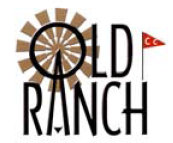Old Ranch Independence Day July 3rd 2010
Time to celebrate and what better place than Old Ranch! It was a fantastic afternoon and evening! What a great place to be a member! Thank you Old Ranch for a most memorable day!!!
Remember: I can no other answer make, but, thanks, and thanks. ~William Shakespeare

Let The Cavorting Begin!
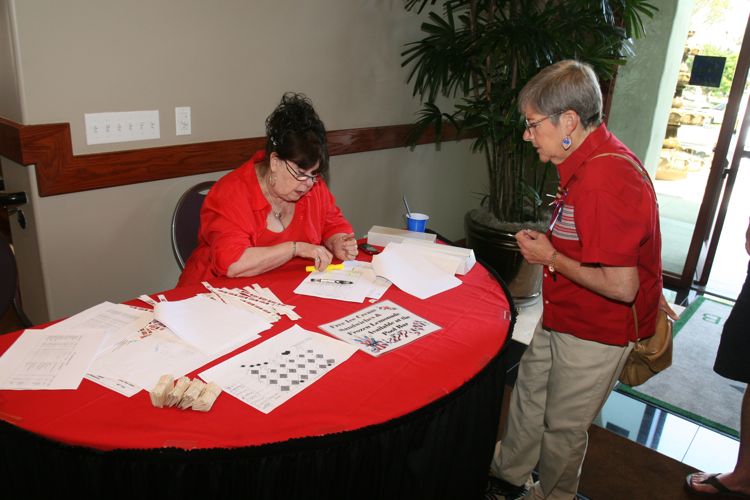
Checking in was
easy! They were so well organized
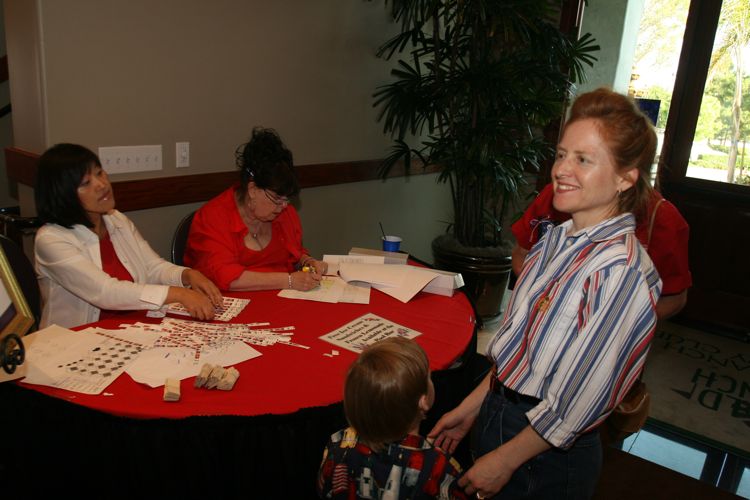
Theo get's his wrist band
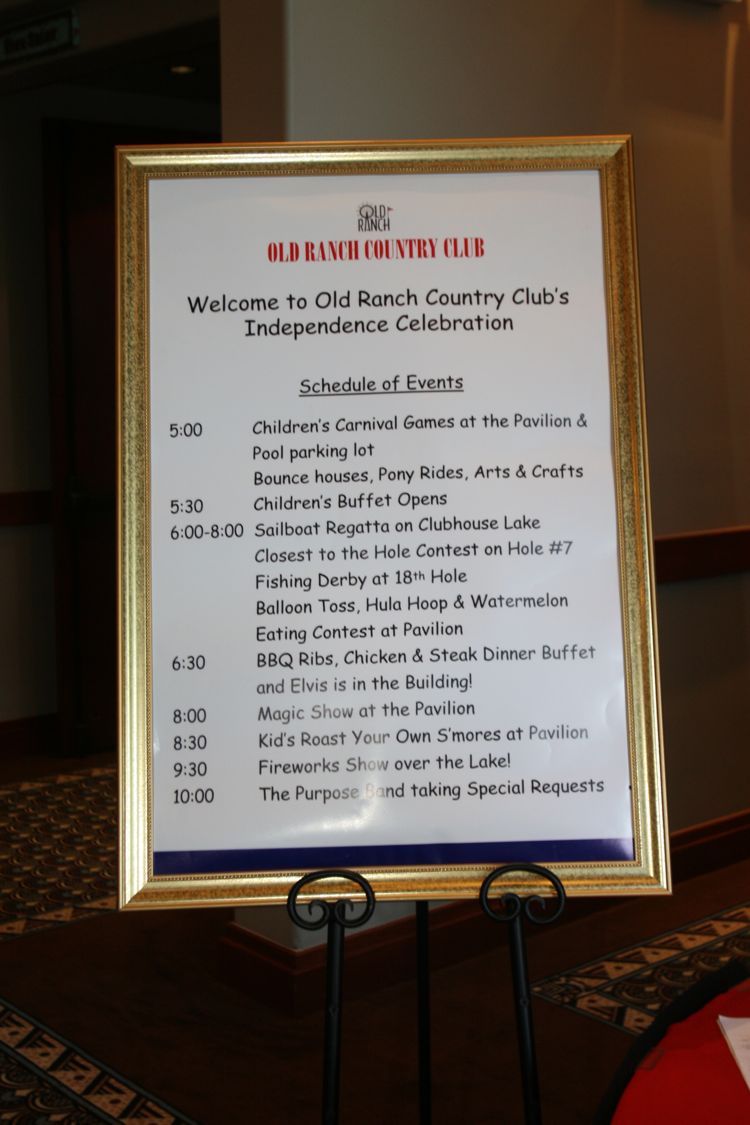
Right on schedule and new events that were not expected
Let's Visit The Pool Area First
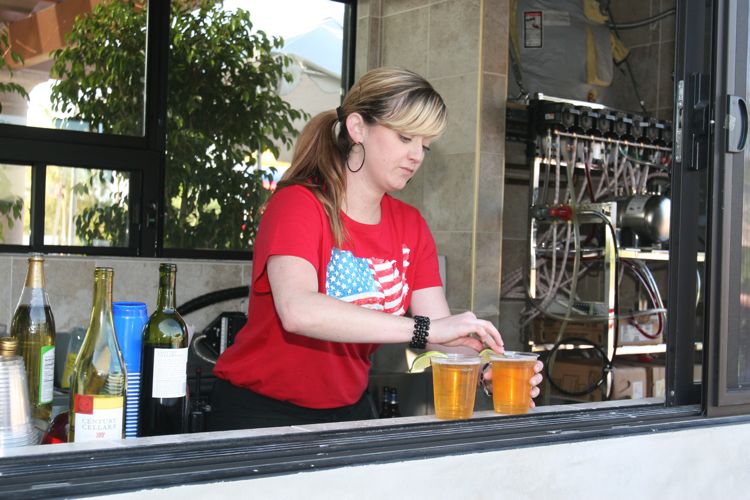
The bar was working well
Remember: A hangover is the wrath of grapes. ~Author Unknown
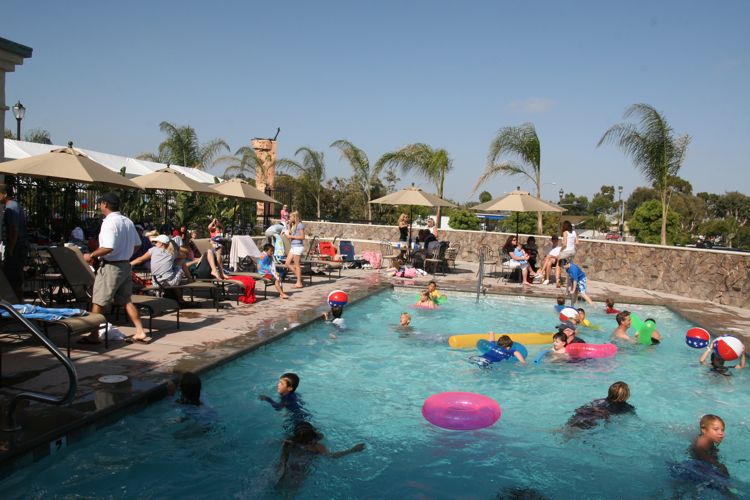
The pool was packed with kids and an occasional brave adult

Things have changed a bit
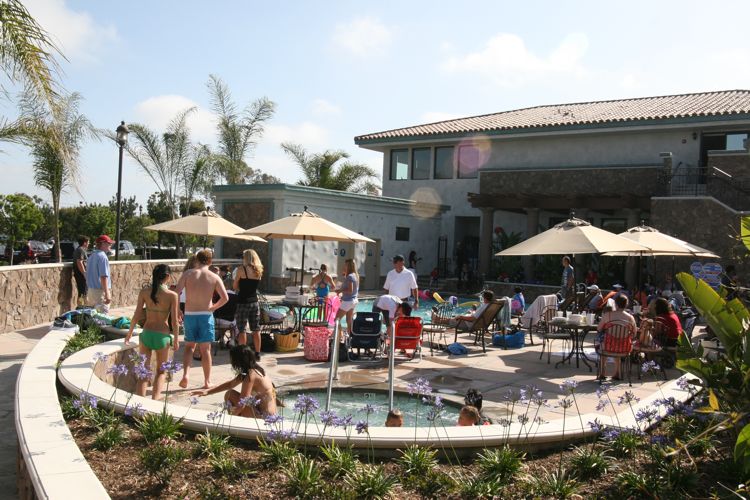
Everybody made a pass by the pool at least once
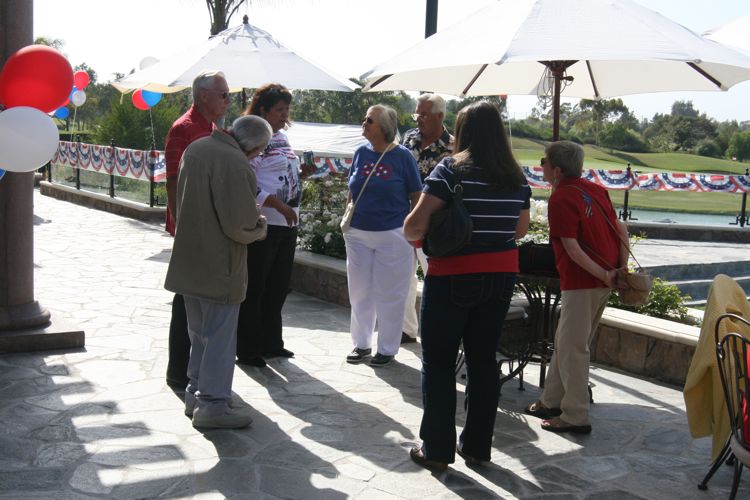
We all arrived at the same time
We Visited The Kids Areas Before It Got Packed
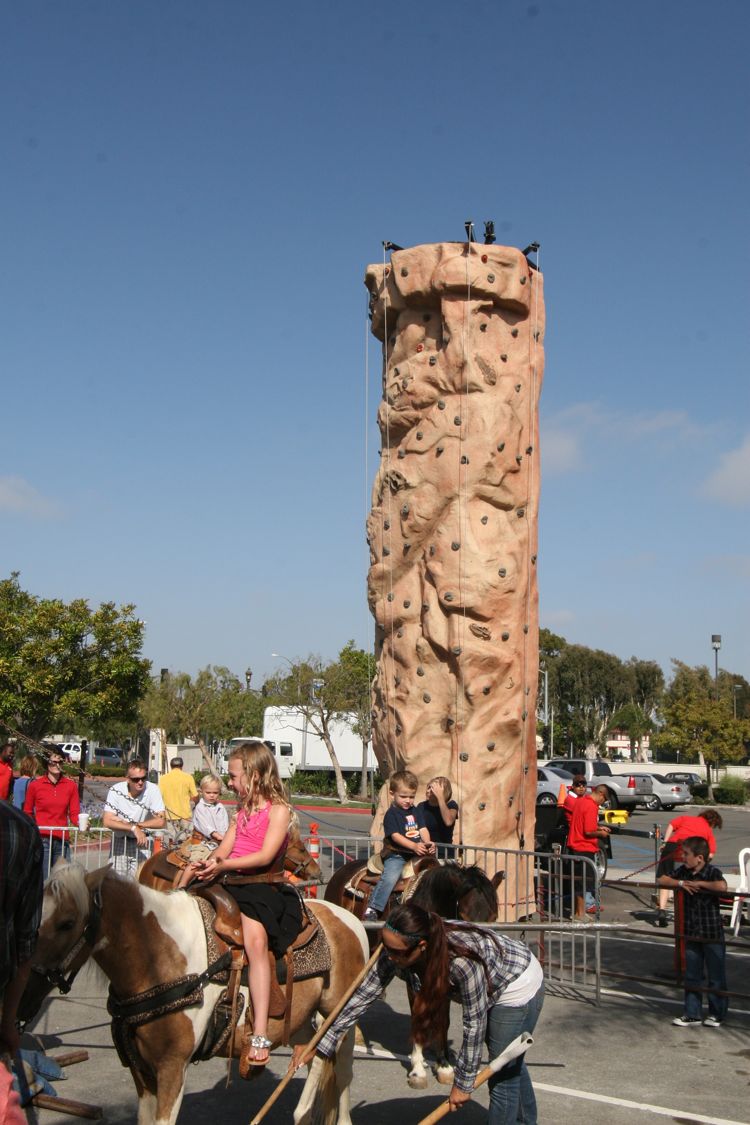
Everybody enjoyed the climb
Did you know? - The concept of the artificial climbing wall began in the UK. The first wall was created in 1964 at Leeds University by Don Robinson, a lecturer in Physical Education and founder of DR Climbing Walls, by inserting pieces of rock into a corridor wall. The first commercial wall was built in Sheffield, traditionally England's centre for climbing due to its proximity to the Peak District.
Gym climbing is becoming an increasingly popular urban sport and provides many people with the opportunity to try some aspects of the sport of rock climbing. Bouldering gyms focus on bouldering rather than roped climbing.

The Bouncy House was busy a few minutes later
Did you know? - The first inflatable structure was designed and invented in 1959 by John Scurlock in Shreveport, Louisiana who was experimenting with inflatable covers for tennis courts when he noticed his employees enjoyed jumping on the covers. John also previously worked for NASA on the Saturn 5 program however that did not have anything directly related to the invention of the first inflatable. He was a mechanical engineer and liked physics.
John was also a pioneer of inflatable domes, inflatable tents, inflatable signs and his greatest achievement was the invention of the safety air cushion that is used by fire and rescue departments to catch people jumping from buildings or heights. His wife Frances started the first inflatable rental company in 1968 and in 1976 they built a custom facility for the production and rental of the various products. They marketed the space walks to various children's events such as birthday parties, school fairs and company picnics.
How's The Setup Going?
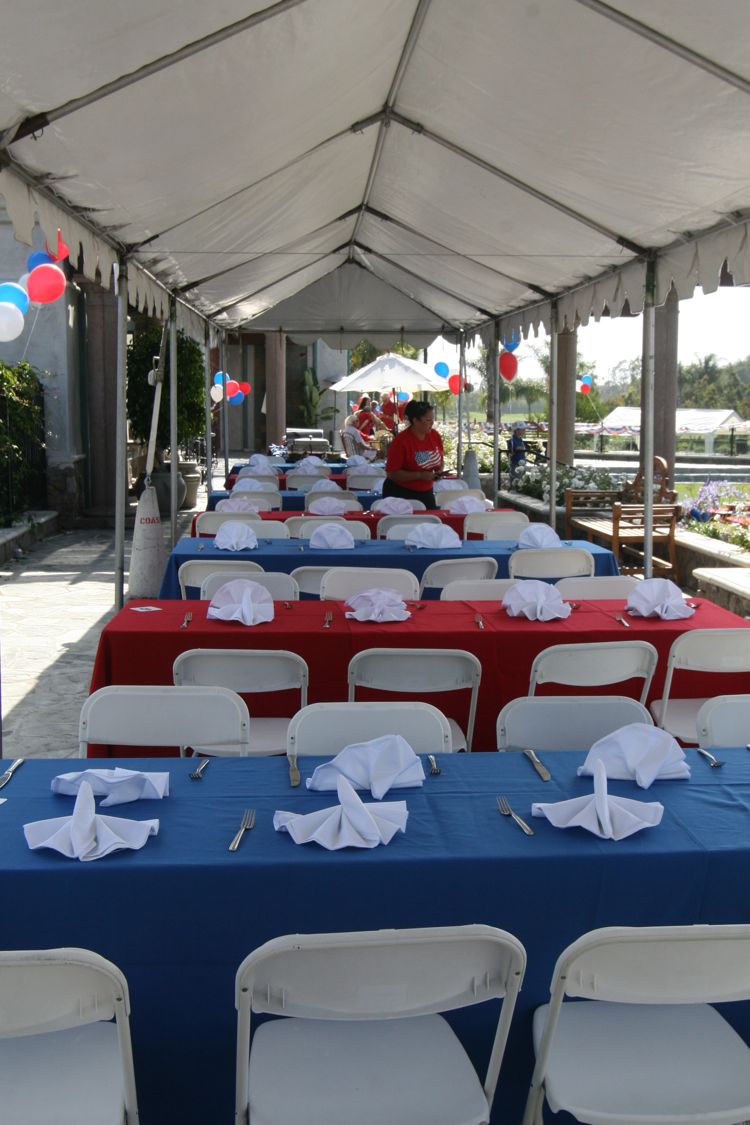
A sea of red, white, and blue tables

The sailboats were already in the water

The 18th green will never be the same!
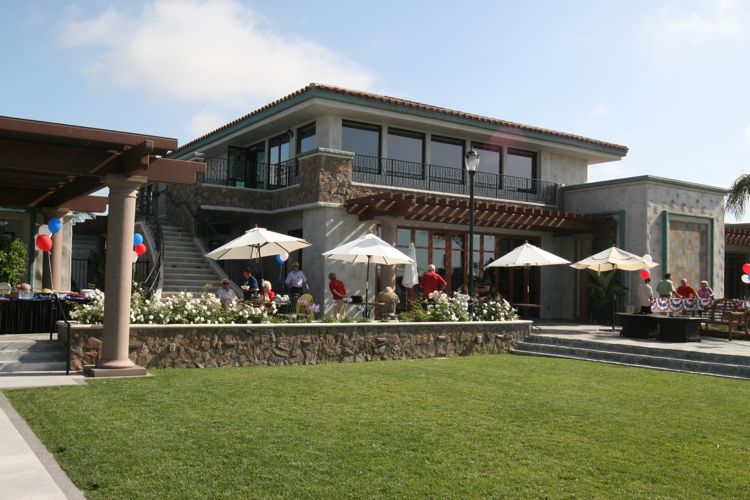
The clubhouse grounds looked manicured

It's 4:30 and folks are starting to arrive en masse

The band was setting up... Good music all evening! It started with a little Jimmy Buffet
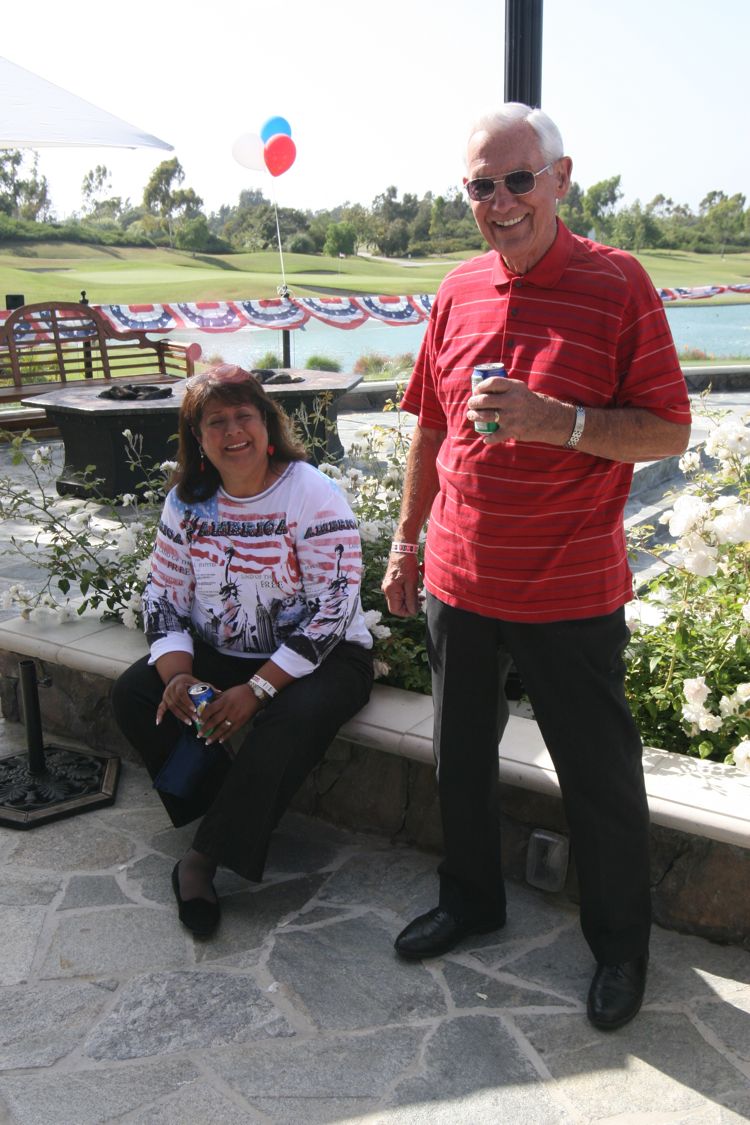
Vicky and Del Kuhn
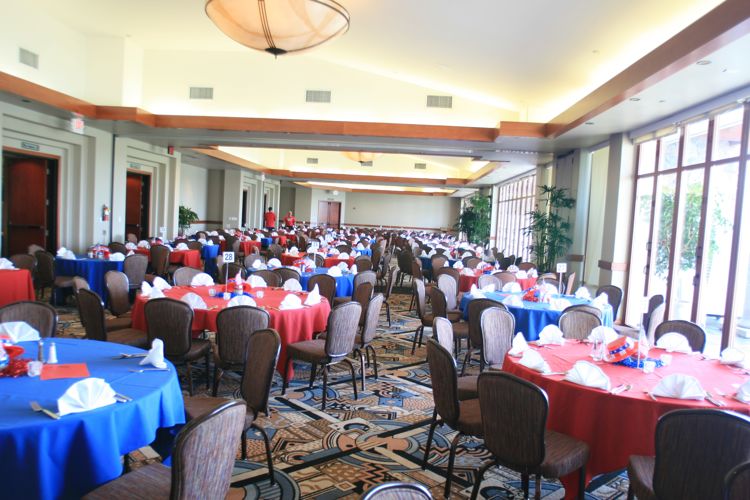
The banquet hall was full of tables
Did you know? - Banquets have been used as a formal occasion for thousands of years. Royalty and higher classes have frequently thrown banquets for special events, such as birthdays, weddings, betrothals, and holidays. Some banquets are used to signing a treaty or agreements of some sort.
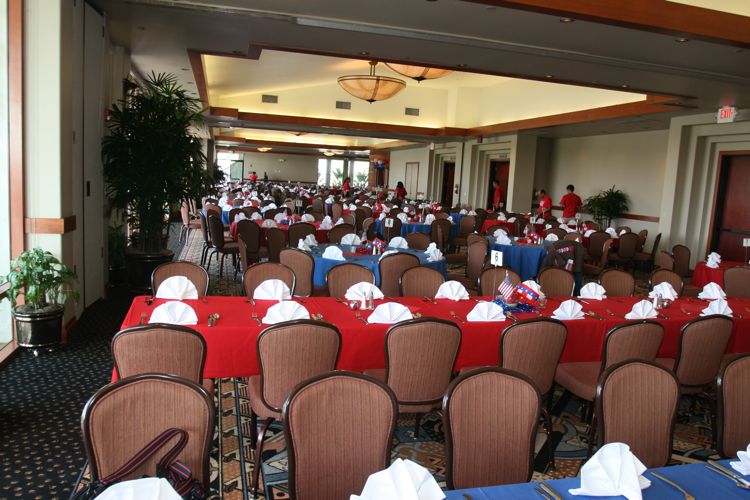
Our view from Table Two
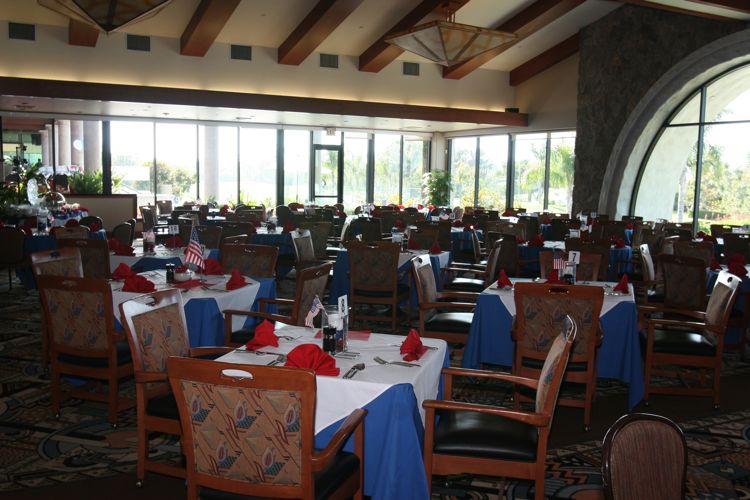
The formal dining room was also ready to go for the guests/members
Did you know? - In the Middle Ages, upper class Britons and other European nobility in castles or large manor houses dined in the Great Hall. This was a large multi-function room capable of seating the bulk of the population of the house. The family would sit at the head table on a raised dais, with the rest of the population arrayed in order of diminishing rank away from them.
Tables in the great hall would tend to be long trestle tables with benches. The sheer number of people in a Great Hall meant it would probably have had a busy, bustling atmosphere. Suggestions that it would also have been quite smelly and smoky are probably, by the standards of the time, unfounded. These rooms had large chimneys and high ceilings and there would have been a
free flow of air through the numerous door and window openings.

Food was easy to get too... Well organized
And In The Bar....
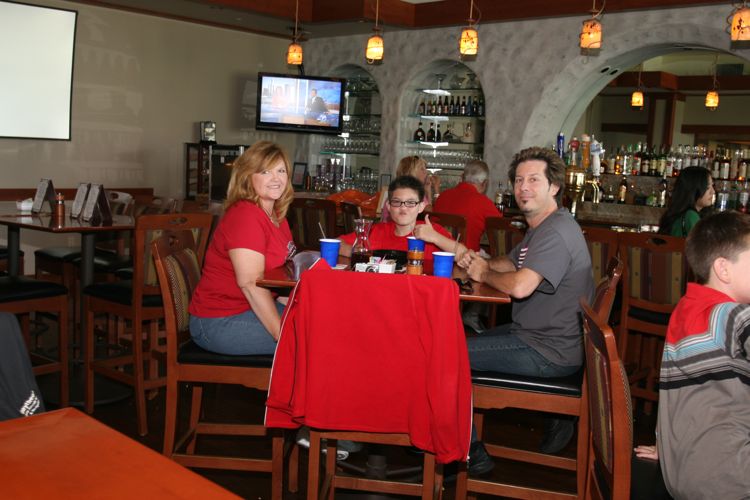
Robin, Nick and Bob got there a little early
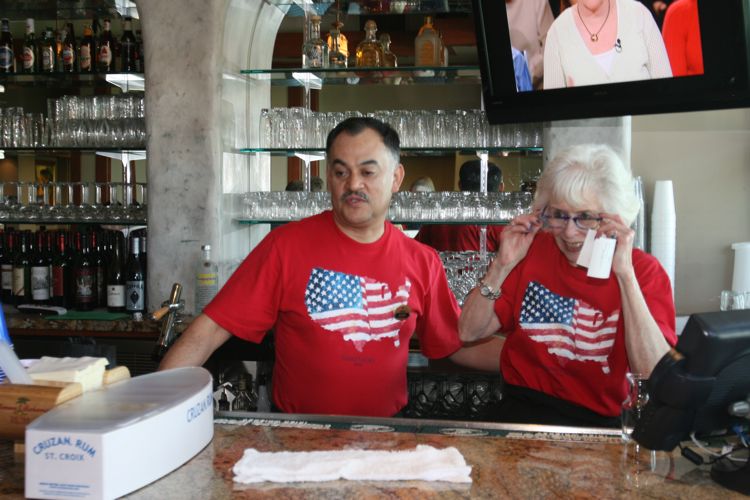
Always working making things nice for the members... Anita and Juan checking everything twice

Is it true, you need a bar code to get into the bar??
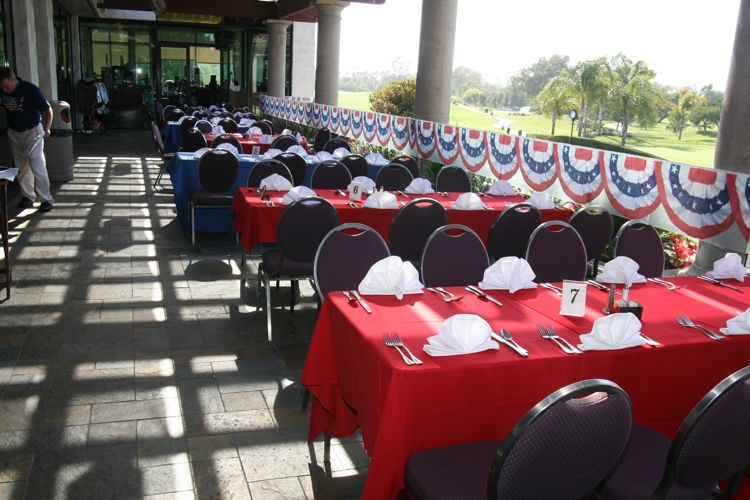
Raymond has the formal dinner area and patio under control
Did you know? - A patio (from the Spanish: patio meaning 'back garden' or 'backyard') is an outdoor space generally used for dining or recreation that often adjoins a residence and is typically paved. It may refer to a roofless inner courtyard of the sort found in Spanish-style dwellings or a paved area between a residence and a garden.
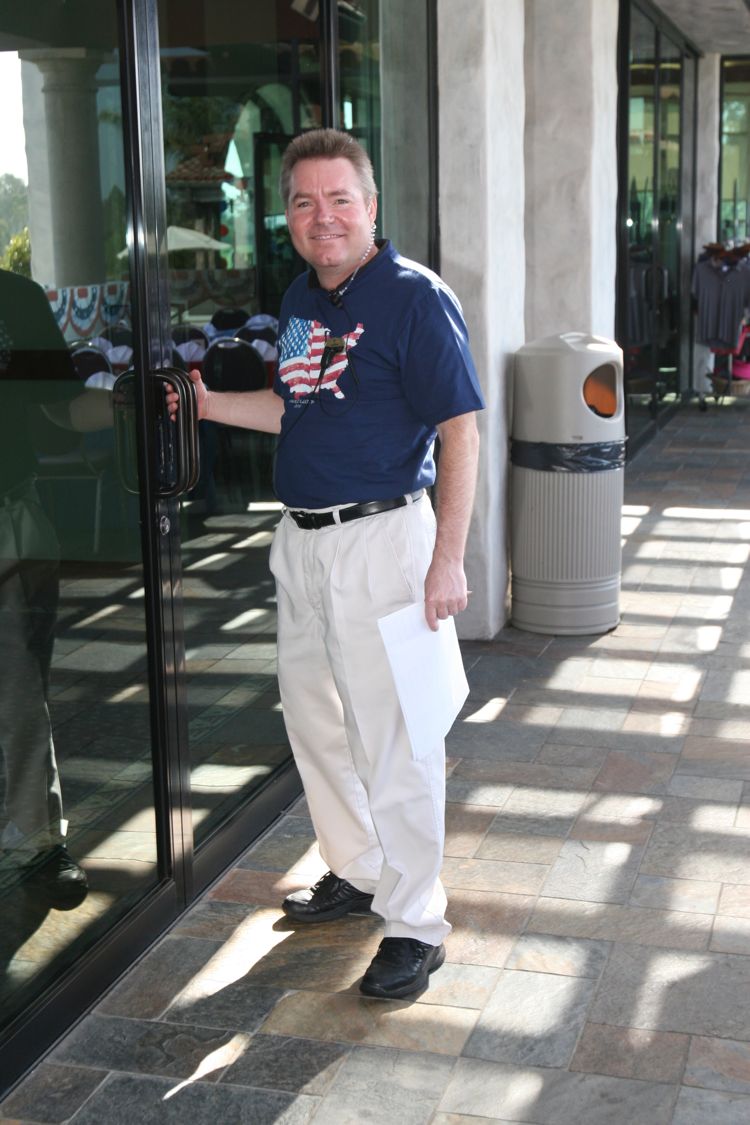
Always a smile

We finally found table #1
Time To Visit The Golf Course

Shaun assisted the folks playing golf

John kept busy with the chipping contest
We Went Out To See Who Was Playing
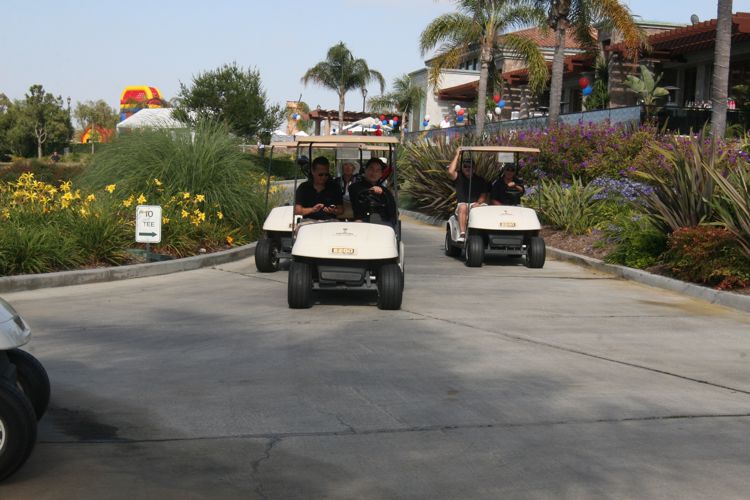
Coming in from the back nine

Richard was checking the cart paths
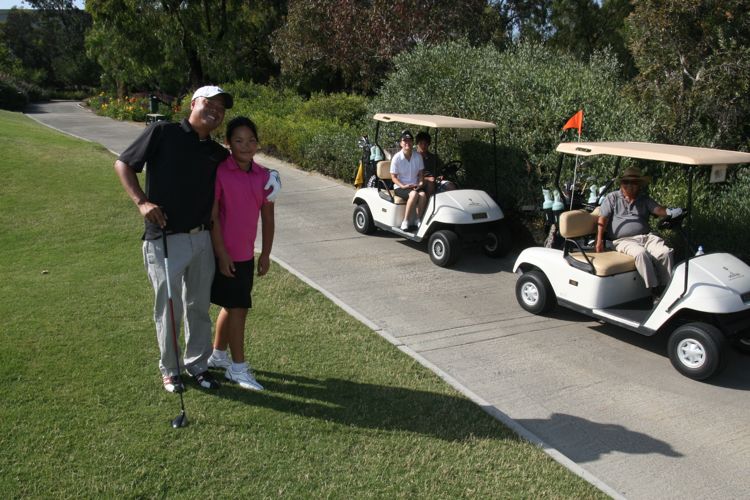
The kids and families were having a ball
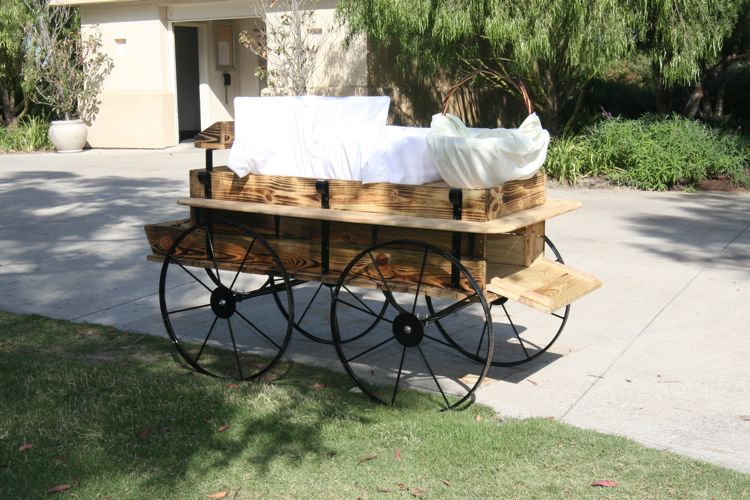
Neat decorations... New generation golf cart
Did you know? - A wagon (in British English, sometimes waggon) or dray (low, sideless) is a heavy four-wheeled vehicle. Wagons were formerly pulled by animals such as horses, mules or oxen.
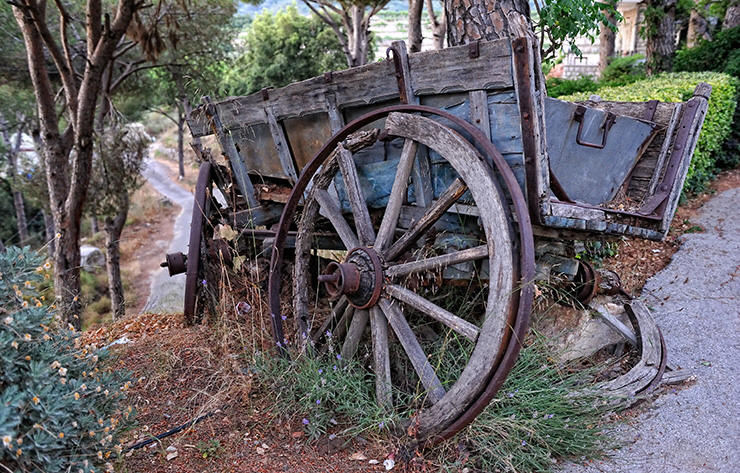
Before the restoration
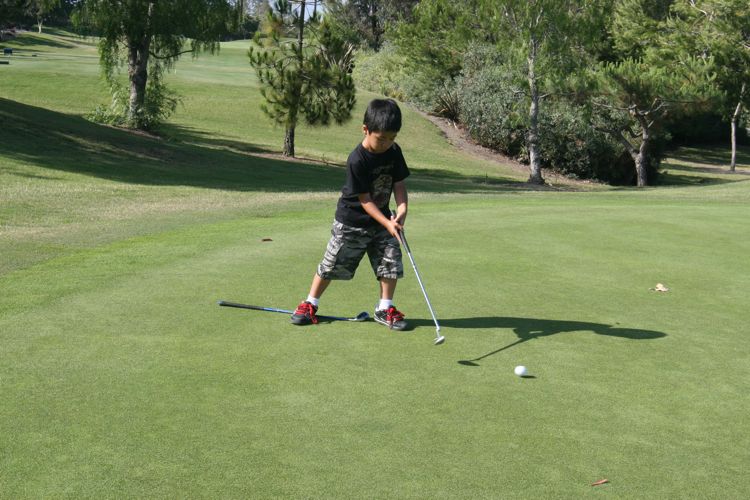
He shot a 20 yard putt... He is on my team any day
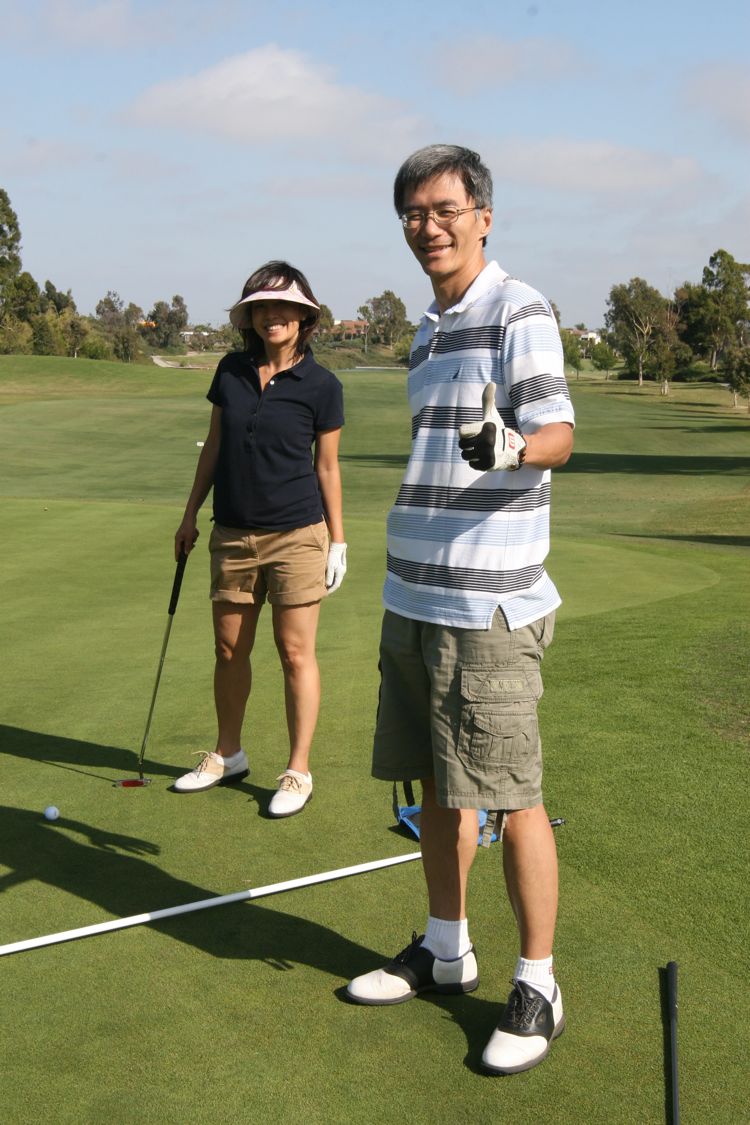
Dad and Mom are proud!
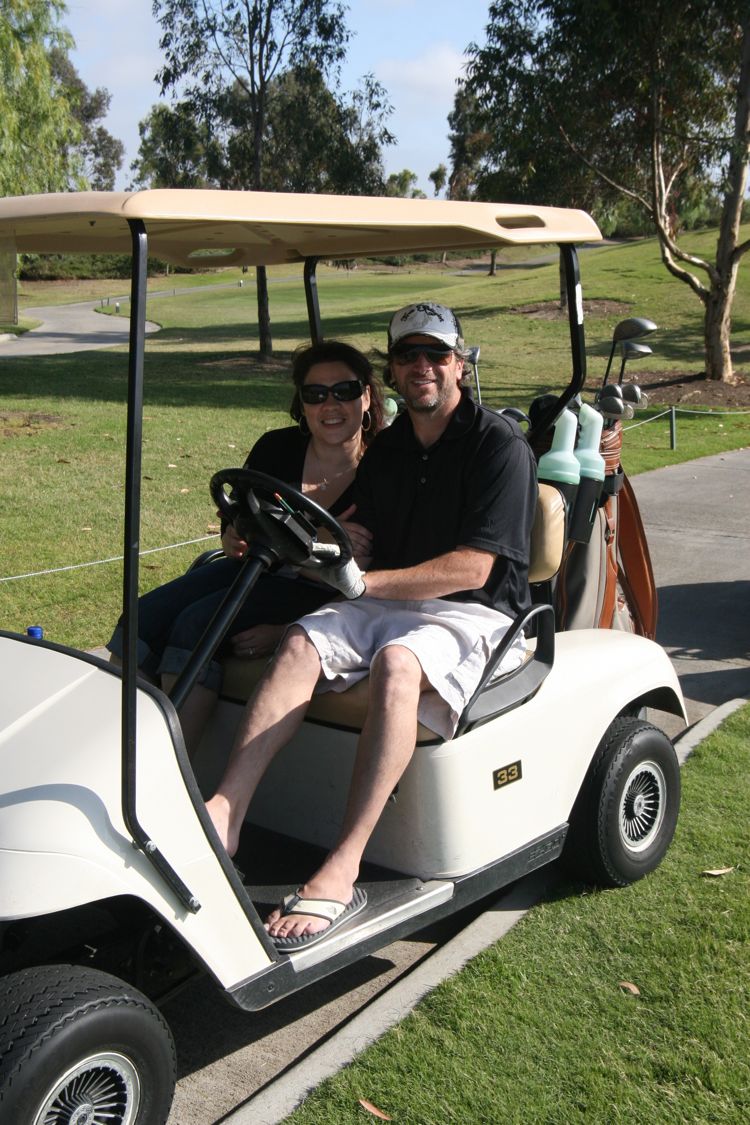
Heading in!
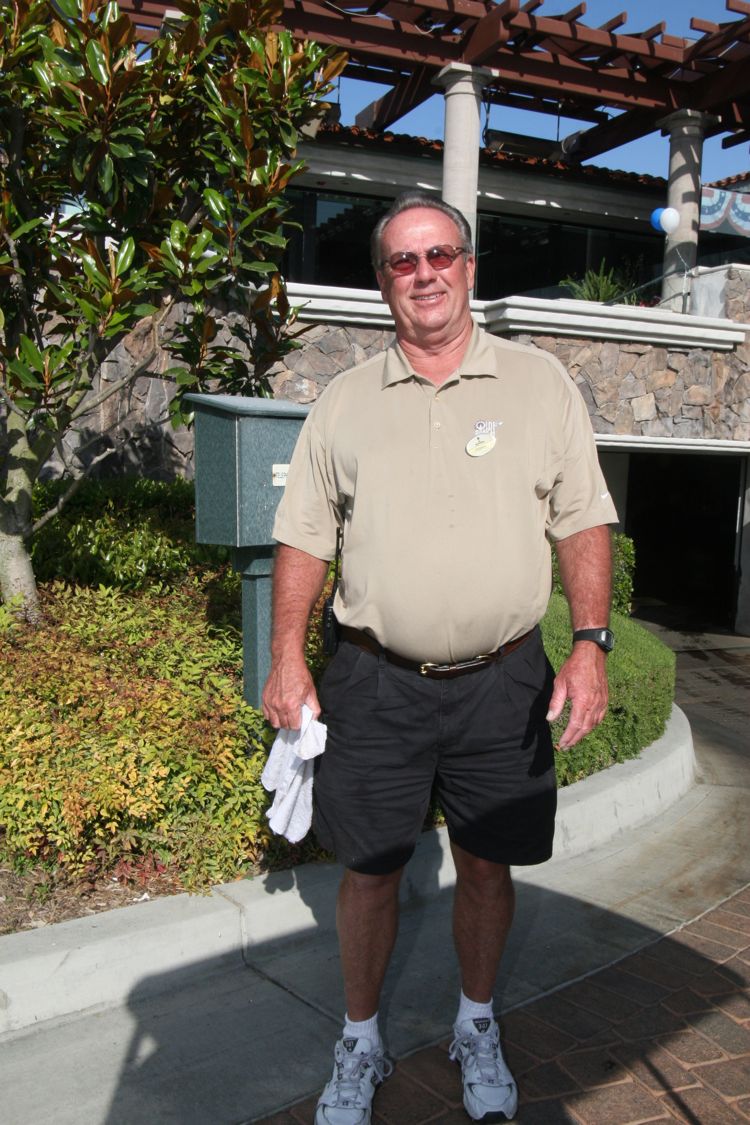
"Welcome back!"
The Sailboats Were Going Strong
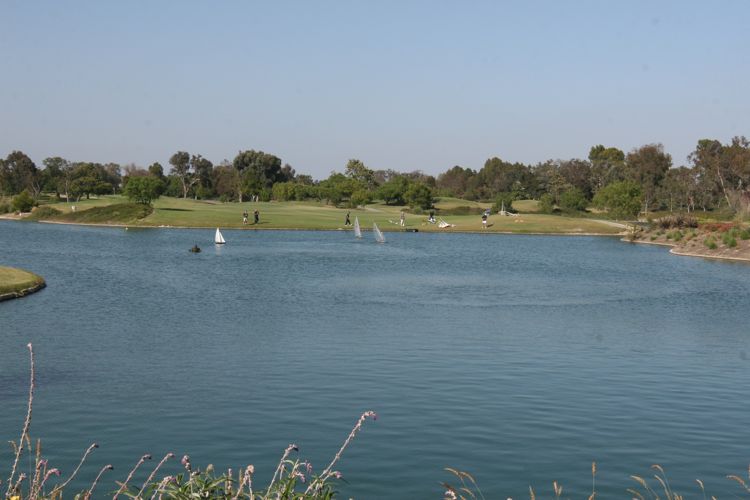
These boats were moving along!
Did you know? - Sailboats use the power of the wind acting on sails to propel the boat. Model sailboats are typically controlled via a multi-channel radio transmitter in the hands of the operator with a corresponding receiver in the boat. By changing the position of the two joysticks on the transmitter signals are sent over two separate channels on a single radio frequency (assigned to the individual boat/operator).
On the boat, the radio receiver is connected to two battery powered electric motors or servos. Signals from the radio transmitter are interpreted by the radio receiver and translated into instructions to change the position of the servos. One servo controls the position of both main and jib sails together (allowing the sails to be trimmed), the other the position of the rudder (allowing the boat to be steered)
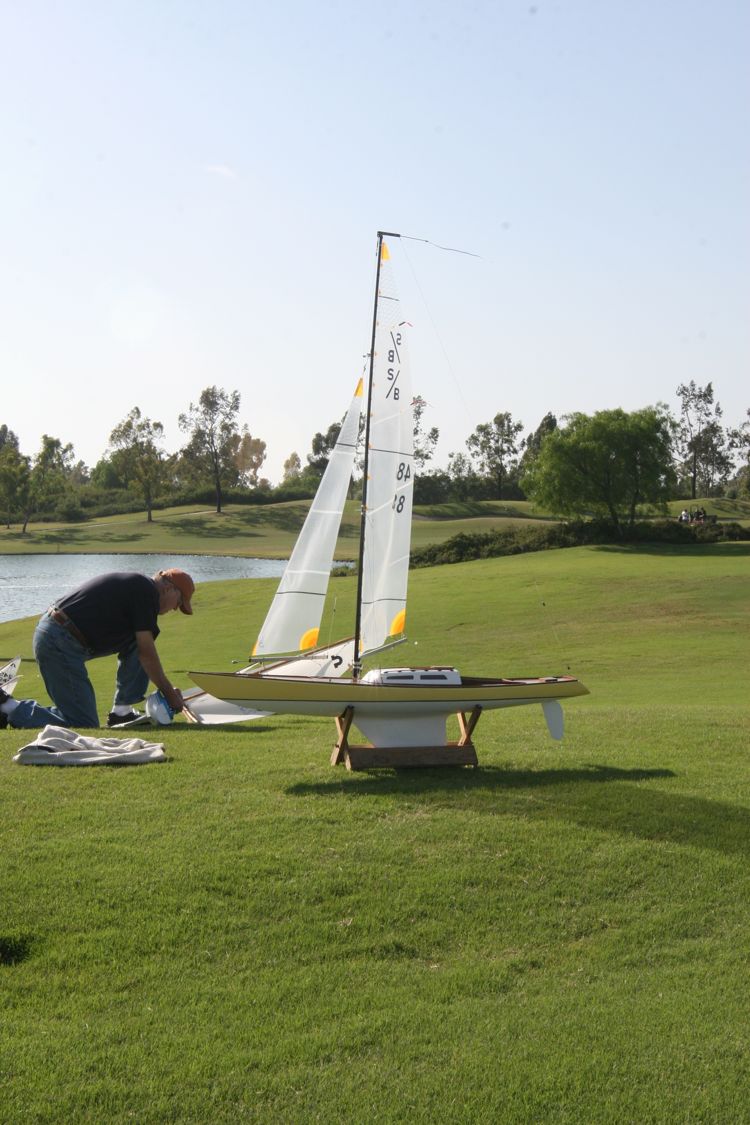
They weigh in at 40+ pounds

Sue and James are both sailors
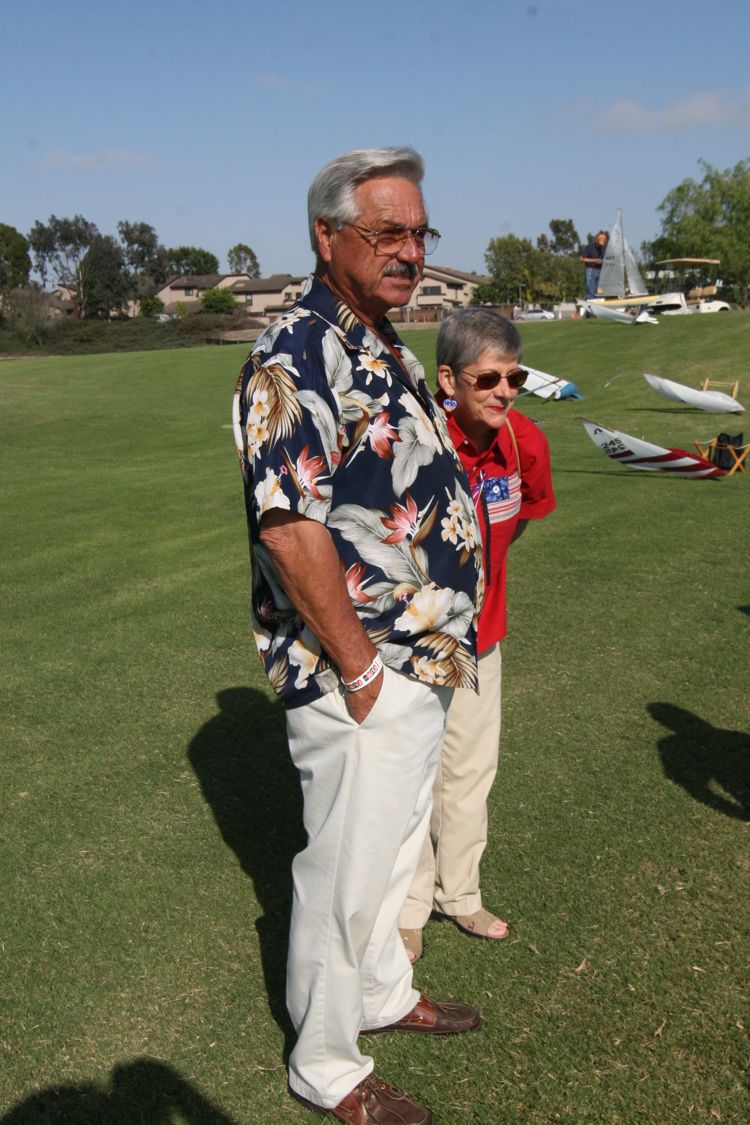
They discuss the finer things about trimming the sails

See through sails make a excellent pictures
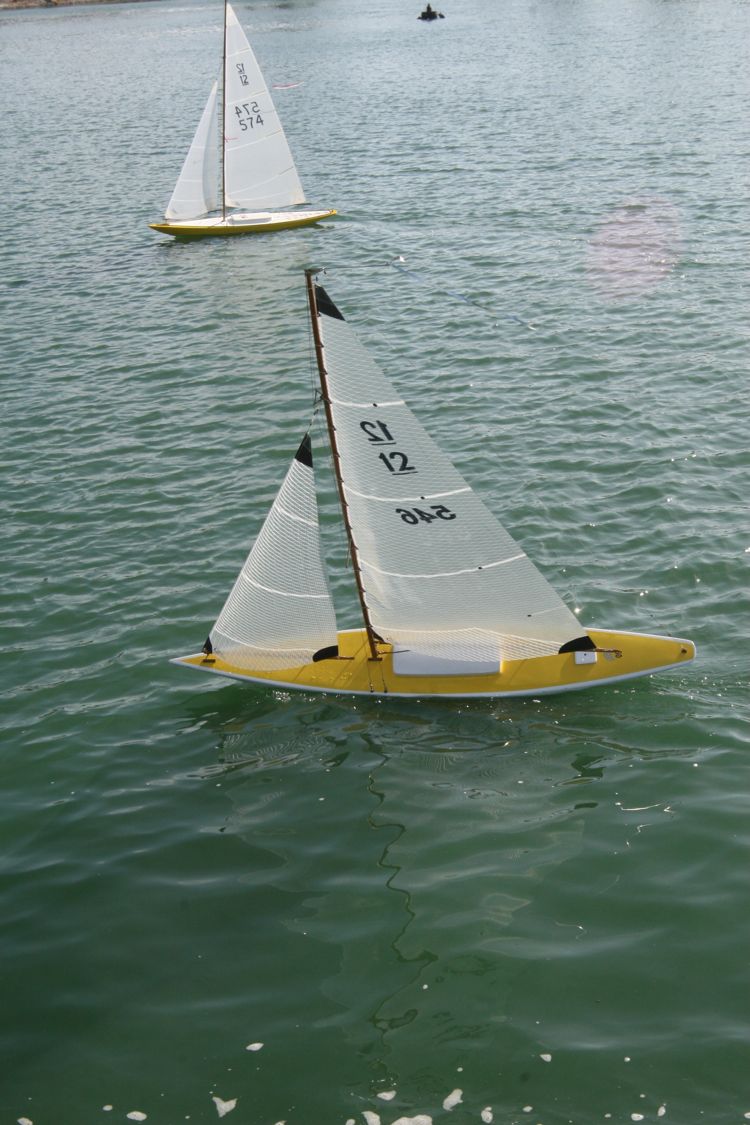
All the ducks seems to be gone!
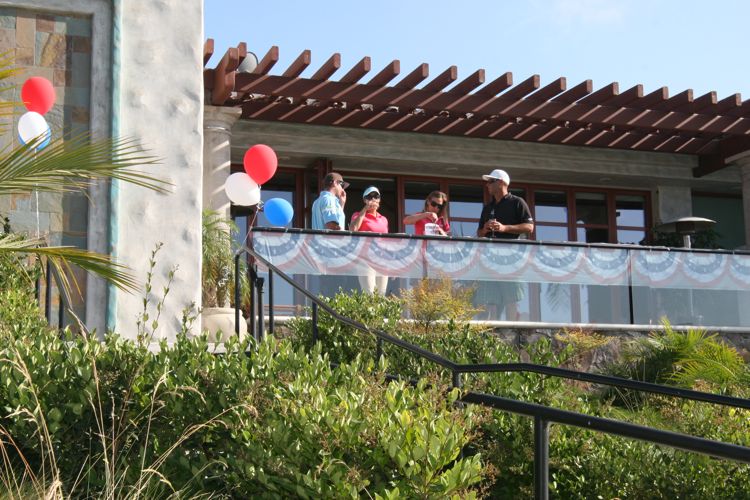
The sailboats were easily seen from the patio veranda
Food Is Starting To Arrive
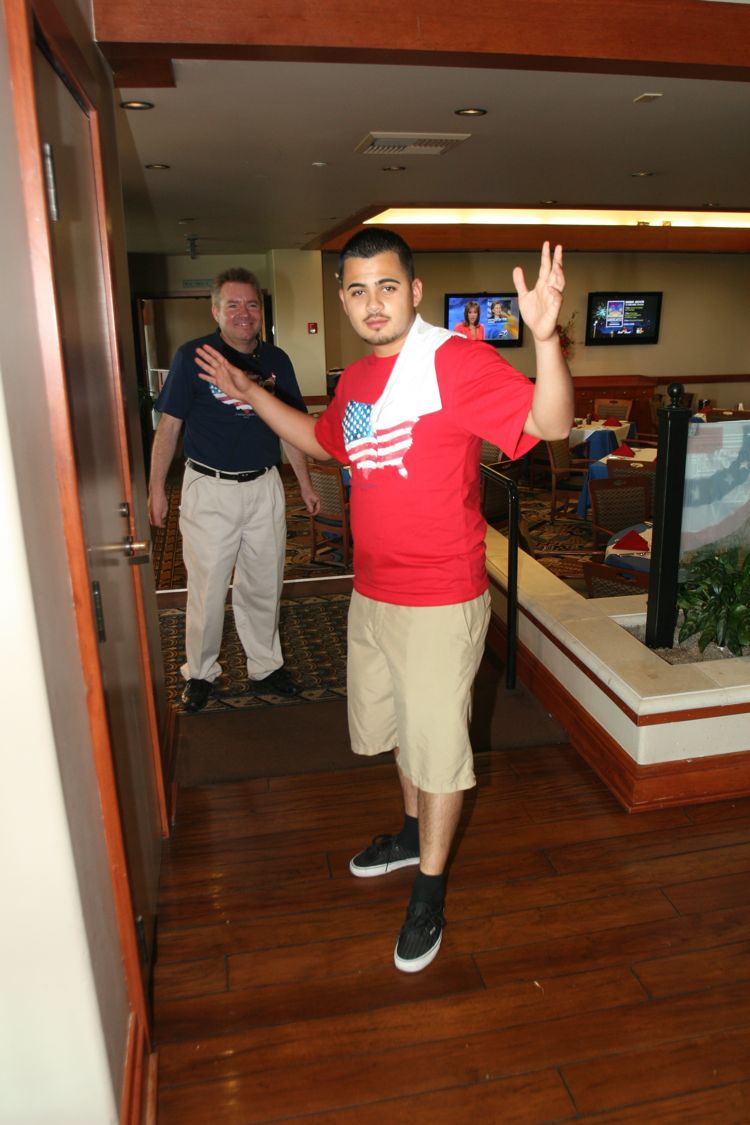
The crew was really working today in order to fill the serving stations in a few minutes
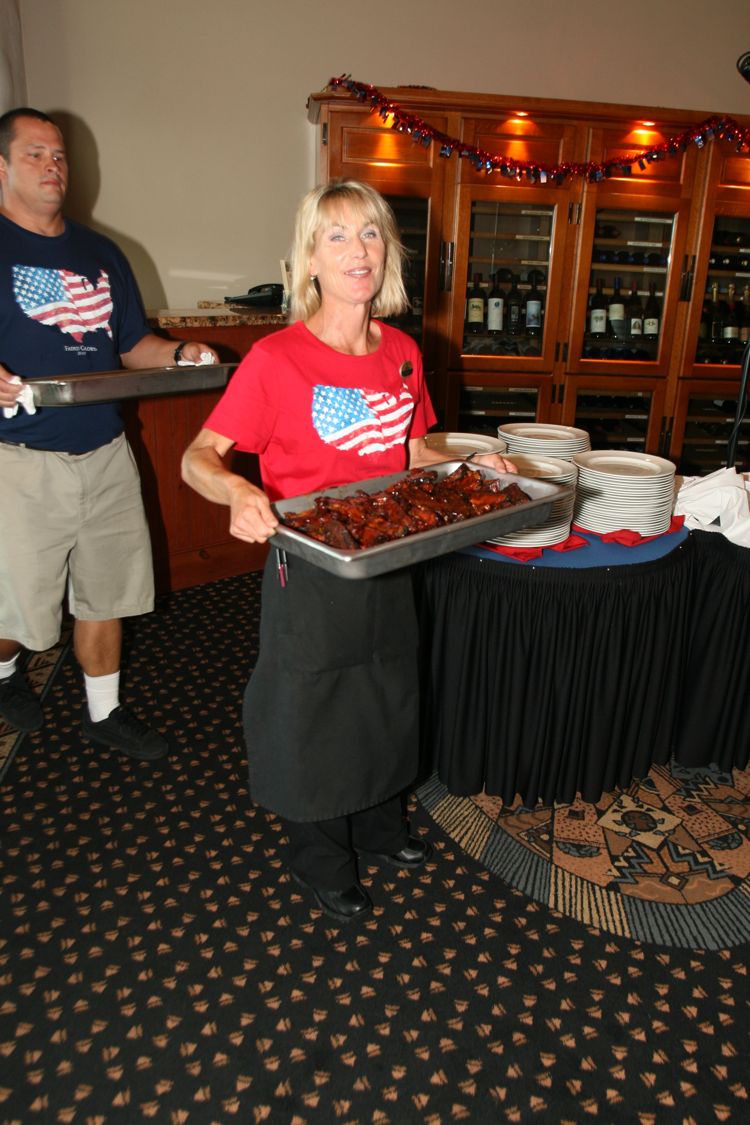
"Please, take that directly to table #4"
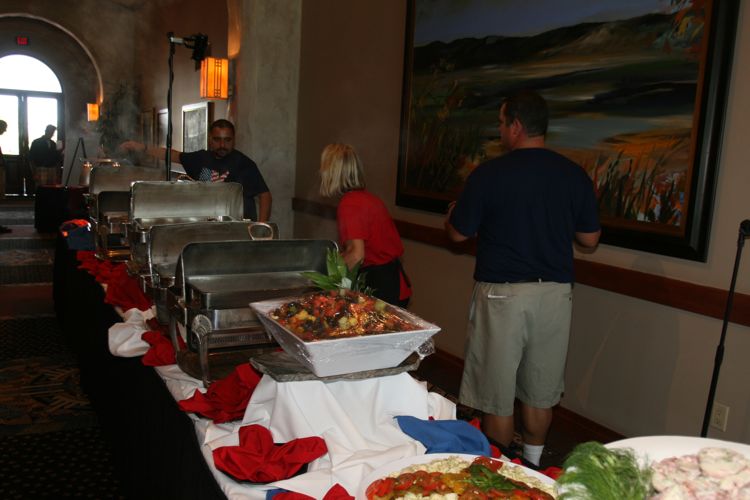
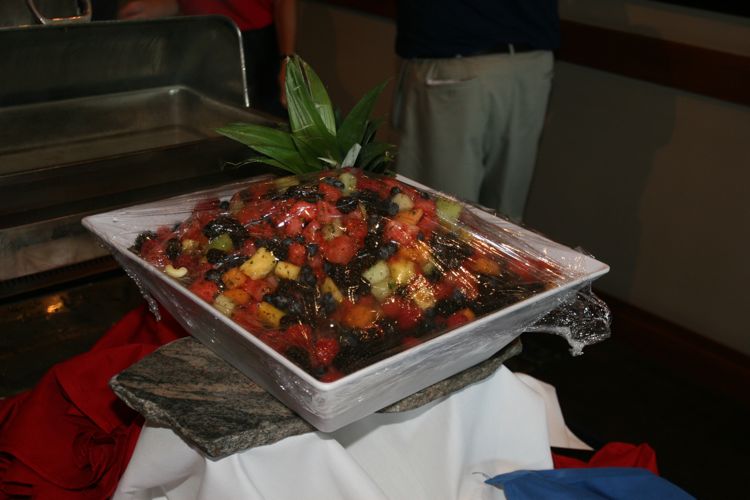
So pretty almost to good to dig into
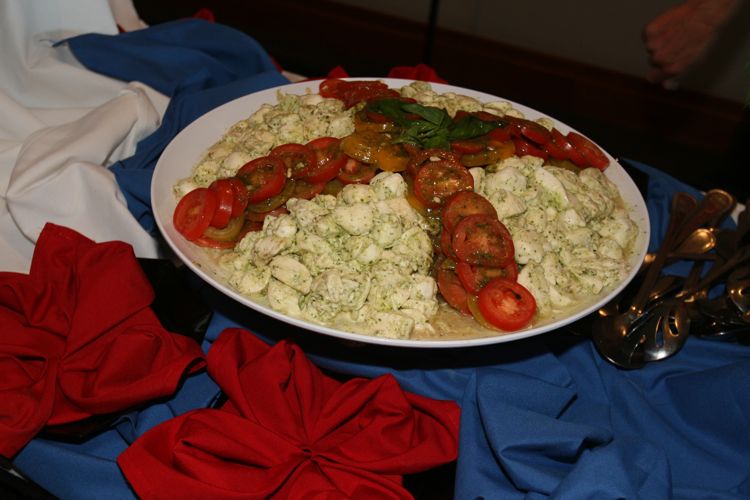
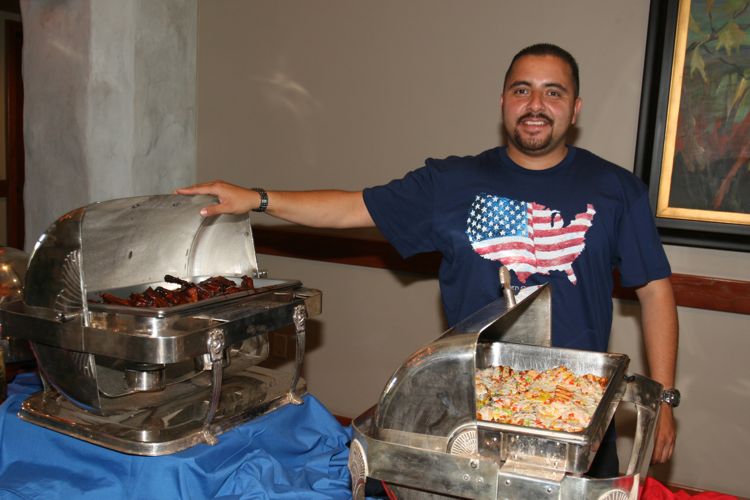
He is awaiting the throngs
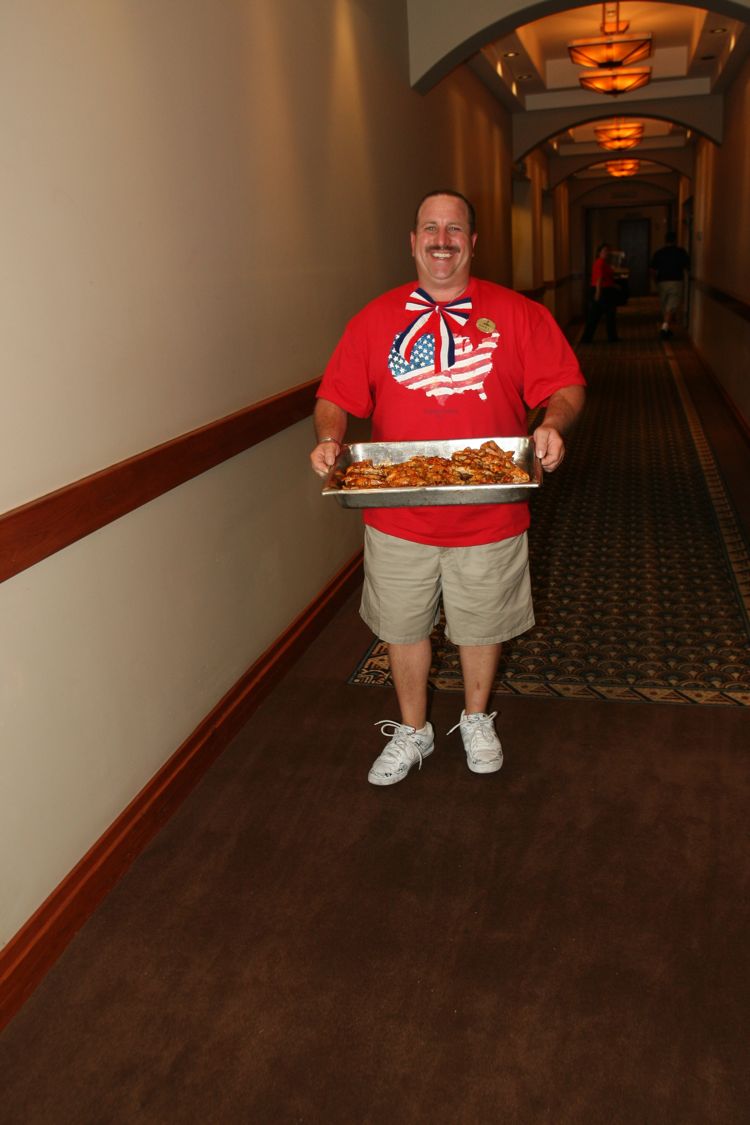
Dr. Longo delivers the goods
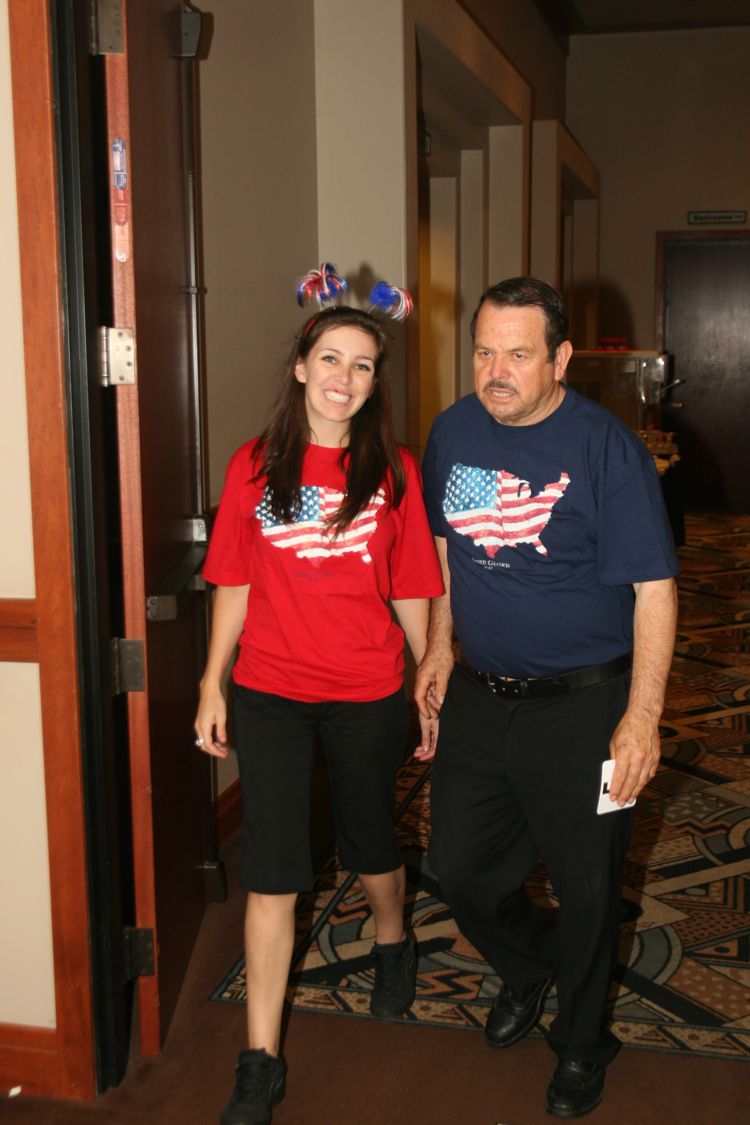

Everybody was moving quickly
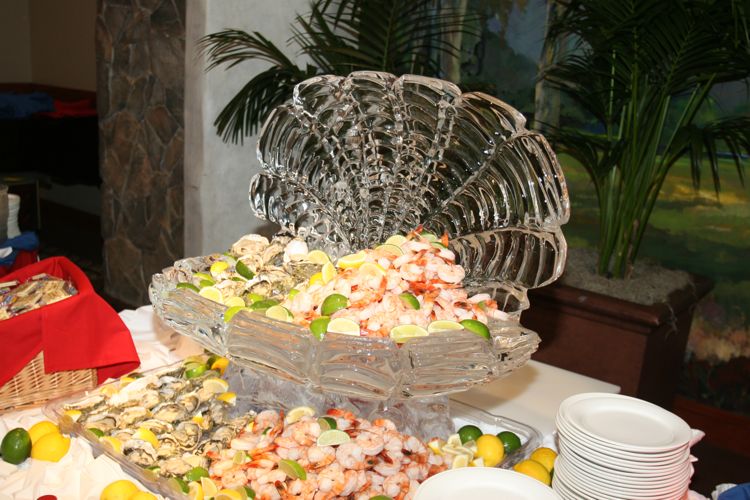
Shrimp and oysters stacked to the ceiling... Well, almost!
Did you know? - Removing the "vein" (a euphemism for the digestive tract) can be referred to as "deveining", though in fact shrimp do not have any real veins; they have an open circulatory system. The "vein" can be removed by making a shallow cut lengthwise down the outer curve of the shrimp's body, allowing the dark ribbon-like digestive tract to be removed with a pointed utensil. Alternatively, if the tail has been detached, the vein can be pinched at the tail end and pulled out completely with the fingers. The shrimp is then rinsed under cold running water.
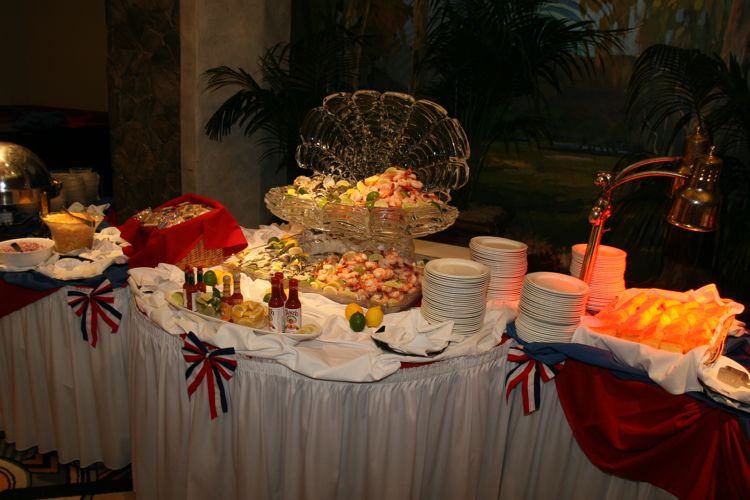
Beautiful presentations

The kids food is being served! Where is James?
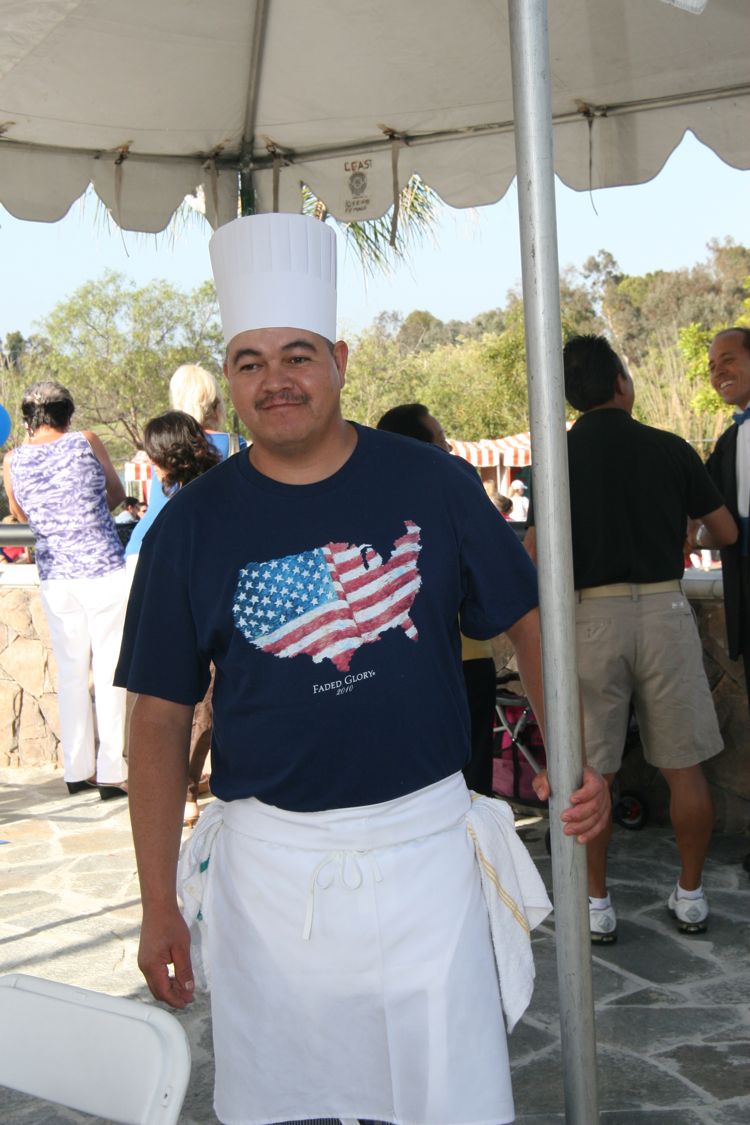
Keeping an eye out

